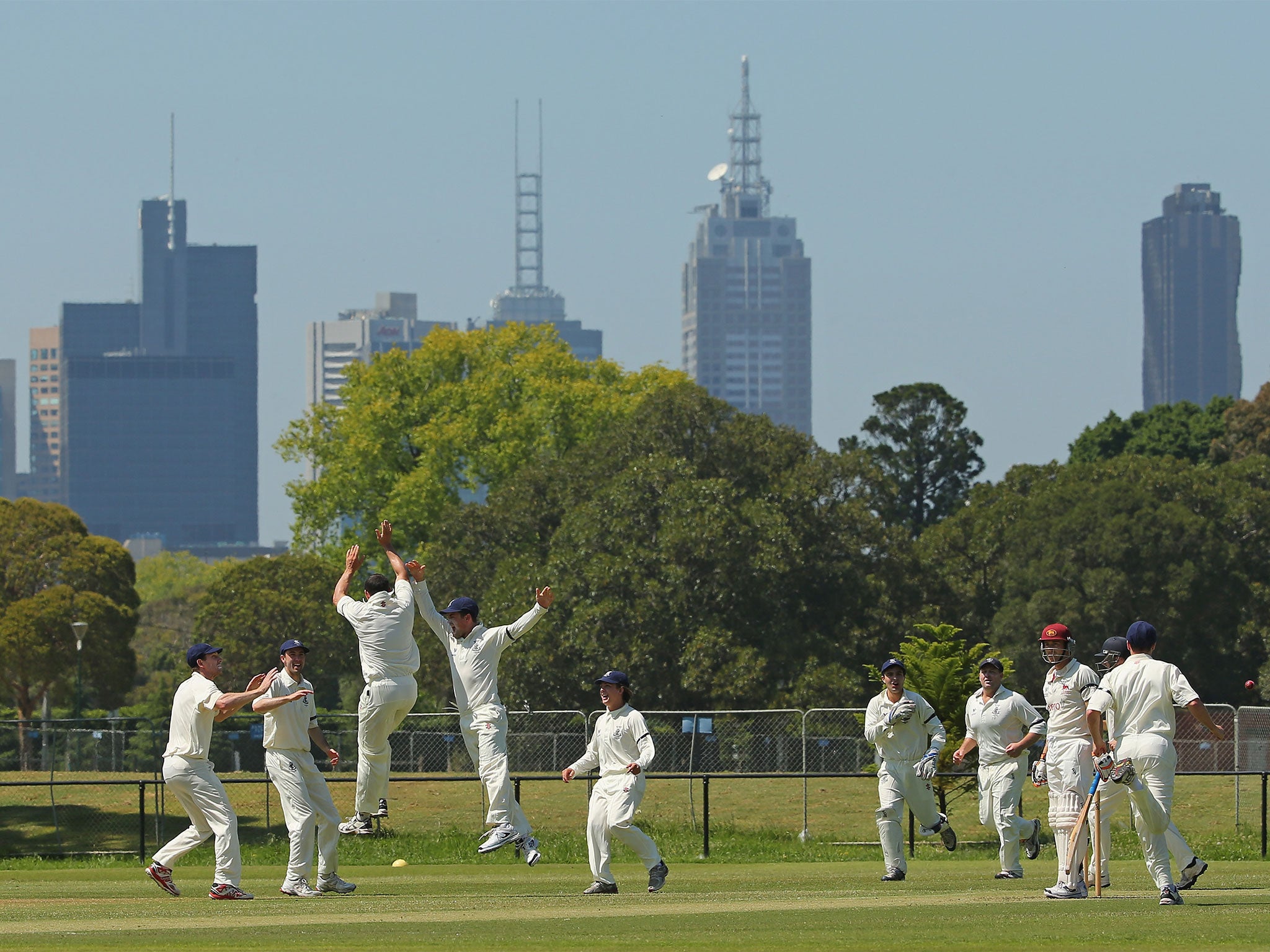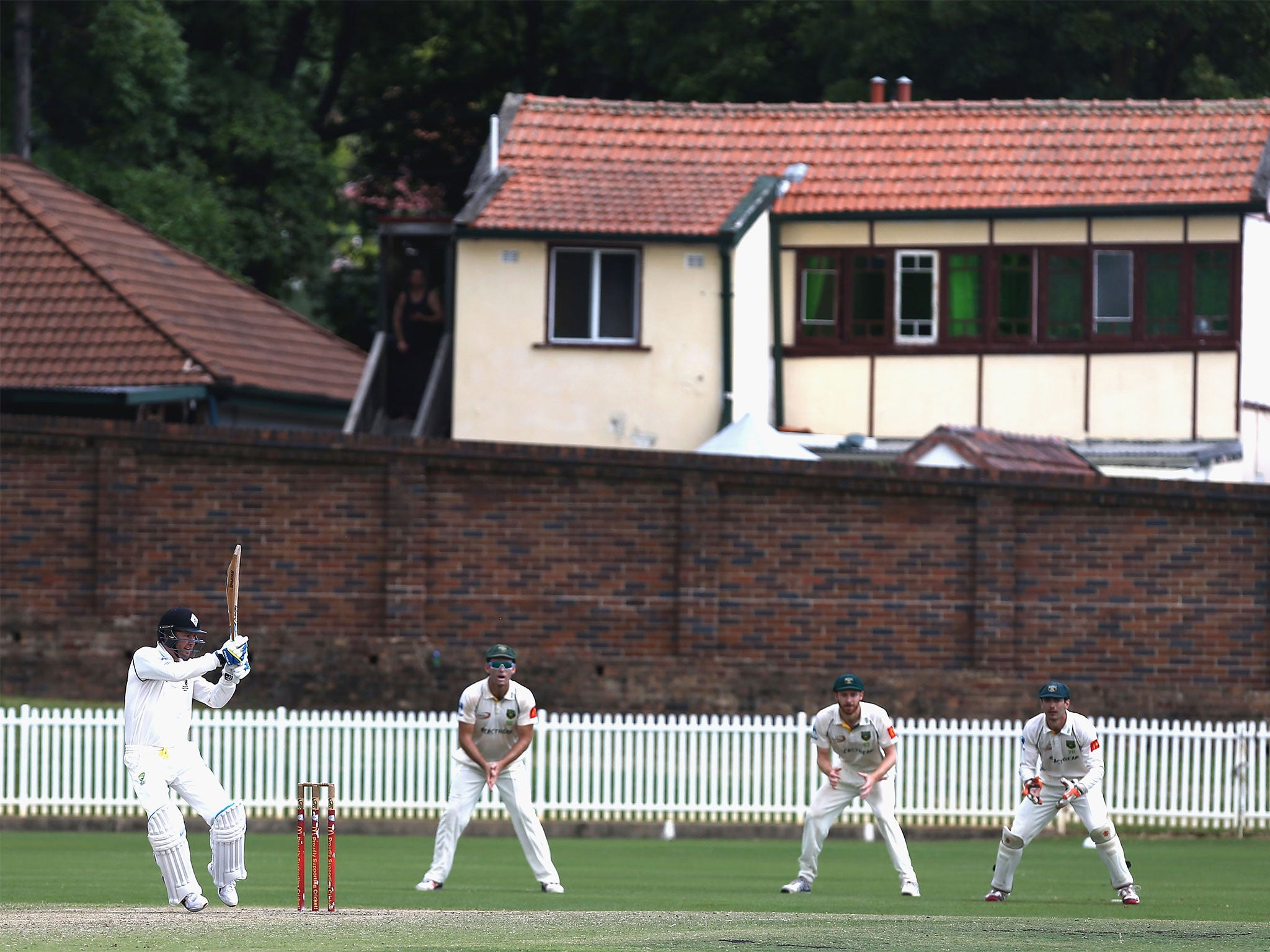The Independent's journalism is supported by our readers. When you purchase through links on our site, we may earn commission.
Rape threats and broken bones: How Australian club cricket is hard-wired for sledging and doing anything to win
Aussie Jarrod Kimber recalls an adolescence spent playing cricket in Melbourne, and just how angry and violent it was

Cricket in Australia isn’t like cricket almost anywhere else. The Australians have long believed sledging helps their game, and all of that starts not in the Test team, but well below in club cricket.
Sledging and bouncers at the tail is horrific to some, it's nothing compared to the cricket I grew up with.
I’m not sure where to start. Perhaps when a teammate took a stump and threatened a member of the opposition with it, maybe. What about when two brothers, one batting, one fielding, who started swinging punches that were meant for each other but almost hit me. Or the time a bunch of grown-arse men told me they would rape my mother because I didn’t walk.
Playing cricket in Australia was tough. I can’t say all of Australia is like this, or all of Melbourne. But it seemed to be how the north and west of Melbourne during the late eighties through to the early 2000s.
Because of this, I saw cricket as a no holds barred verbal contact sport you had to survive to win.
The Australian team talk often about the mythical line of behaviour that they headbutt, but try not to cross. In the cricket I played, a headbutt was sometimes literal, not figurative.
In an under-14 match I slogged a couple of boundaries against the opening bowler. At the end of an over the bowler followed through right into me, dropping his shoulder into my chest hard. The umpire saw the whole thing, but instead of warning the bowler, or reporting him, or acting like a normal human grown-up, he told me the next time it happens I should hit him with the bat. Just a little one, on the shin, as that’ll stop him. I did it and almost started a brawl.

And I've been in a cricket brawl. When a leg-spinner bowled a double bouncer, the batsman somehow missed it, and the bowler, for no real logical reason, sent the batsman off. And by send him off, he followed him off the ground screaming at him. The batsman kept walking off stoically, until 50 metres in he'd had enough and jumped onto the bowler, forcing him to the ground and then commenced punching him in the face, with his gloves on. This devolved into an all-out brawl. Before both sides stopped, and the game went on.
But there's also violence in play. Like when an old enough to know better bowler requested a short leg for an obvious slogger who already cleared every road near the ground. No one suggested a helmet, or even a box, so I squatted with polyester whites as my only protection as the batsman hit 26 runs from the over. After every boundary I asked to move into a safer position, the bowler said no. After the fourth boundary, the batsman told me it was ok, he’d try not to hit one near me, considering the way he swung the bat, it scared me. My safety came behind the need for a wicket.
I saw a third grade club grand final. An amateur form of cricket, played on an Astroturf wicket, a long way from the pinnacle of the game. And yet one team threatened the opposition with so much violence that two of their players suspended for life, and the team had to sit out the following season. But as much as I can remember, their win still counted.
And winning was all that seemed to matter. By any means, no matter the cost.
I was 13 and fielding at slip to a bowler only a year older than me, but seemed to have the body and pace, of a man. He got one to take the edge of the bat; I tried to take the catch, and my finger snapped. The finger's trying to play straight, but it's facing square leg. I ran from the ground to show it to my father; he asked someone to get tape, then taped the broken finger to a healthy one, and sent me straight back onto the field. He didn’t ask how I was and I didn't question it; I knew it was my job to get back out there.
As a 16-year-old upstart I opened the batting late on day one and played a wild hook shot where I didn’t hit the ball. The problem was that my opposition were positive I had hit it. So they called me a cheat, got their fastest bowler to bowl around the wicket only at my head, and said they’d sort it out after stumps. At stumps I ran off the field. Day two was a week later, these men, with jobs families, and mortgages, had lost none of their anger. And as I plinked the ball around, they abused and threatened. When that didn’t work, they threatened my mother. A full week after the alleged edge they were still angry enough I had cheated them that they will tell a 16-year-old kid they’d rape his mother. I just batted on, because, winning.

Batting, winning, seemed like the most important thing I could do. It didn’t matter if it's a random competition on the outskirts of town with factory workers, painters and small business owners spending their Saturday, it felt like something bigger. Something you had to win, because something big was at stake. My father bowled 30 over spells for years to win matches for his club. A few years after he retired a surgeon told him he’d require knee replacements in both legs.
I haven’t played cricket in Australia in ten years. In that time Australia's changed to a place with creative baristas and boutique massage therapists on every corner. So assumedly club cricket has also become less brutal. But no matter how much Australia changes, that need to win, that drives our cricket, is always going to be there. The line will always be head-butted.
Cricket in England, or anywhere else I know of, isn’t anywhere near the same. The first sledge I received , “Oh dear, he doesn’t really look that comfortable now, does he”. I laughed.
Jarrod Kimber's latest novella the Lillee of Campbellfield is about his relationship with his father, and club cricket. It is available now from Amazon.
Join our commenting forum
Join thought-provoking conversations, follow other Independent readers and see their replies
Comments
Bookmark popover
Removed from bookmarks